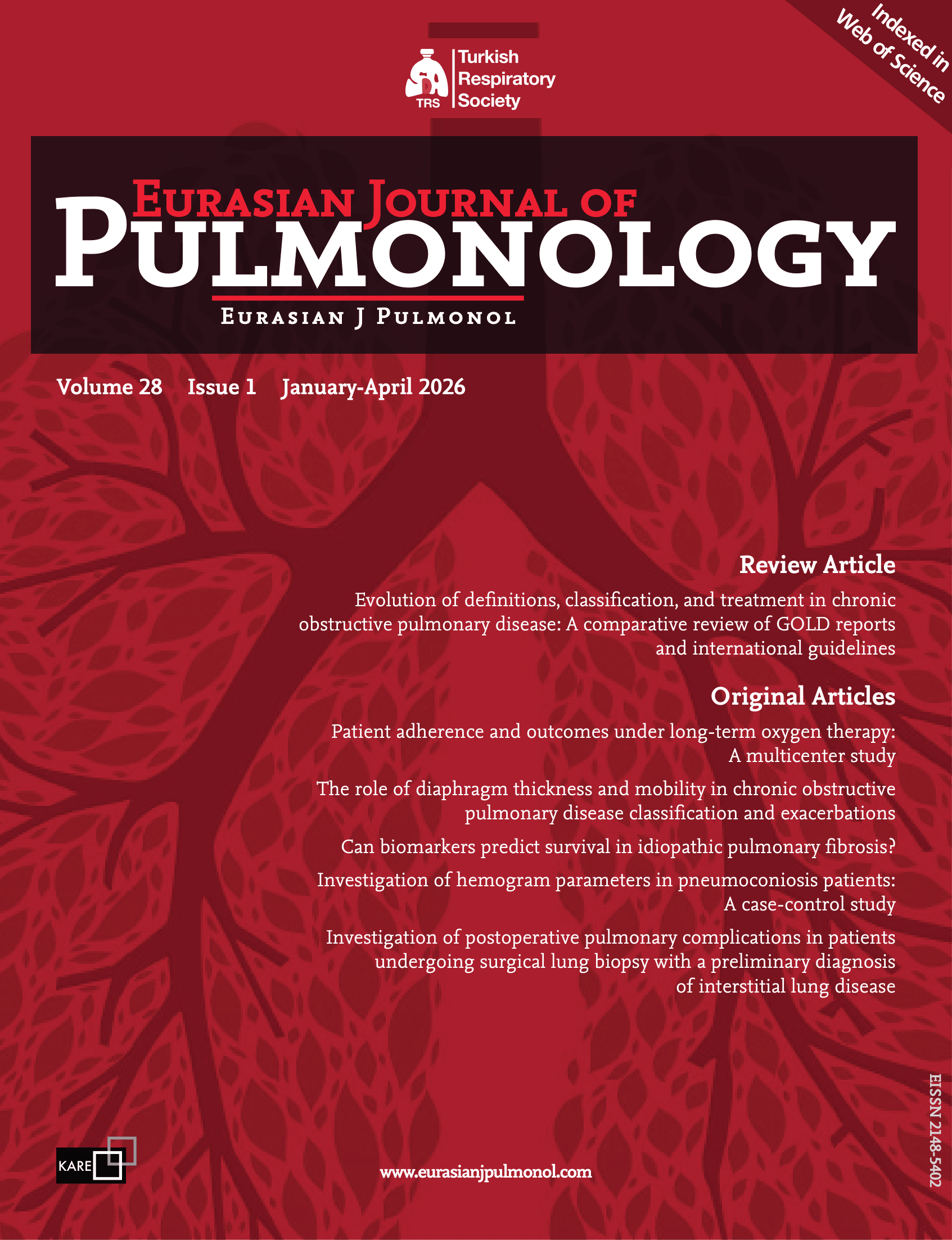2Department of Thoracic Surgery, Dr. Suat Seren Chest Diseases and Surgery Training and Research Hospital, Izmir, Turkey
Abstract
OBJECTIVE: Lung cancer is the most diagnosed and the most frequent cause of cancer-related deaths in the world. Nonsmall cell lung cancer (NSCLC) prognosis in younger patients is controversial. In this study, surgical survival of young age group with NSCLC was analyzed retrospectively.
MATERIALS AND METHODS: A total of 1043 patients who underwent anatomical lung resection and mediastinal lymph node dissection were analyzed between January 2005 and December 2013. Patients were divided into two groups in terms of age being below 45 years and younger (Group 1) and over 45 years (Group 2).
RESULTS: There were 68 patients in Group 1 and 975 patients in Group 2. Male/female rate was 2.4 and 14, respectively (P < 0.001). Adenocarcinoma was more diagnosed in Group 1 (47.1%), and squamous cell carcinoma was more seen in Group 2 (54.7%). The pathological diagnosis was statistically significant (P < 0.001). All groups' median survival time was 51 months, and 5-year survival rate was 47.1%. Group 1 and 2 survival rates were 64 and 48 months, respectively, with Group 1 having significantly better results than Group 2 (P < 0.001). The 5-year survival rate of female patients included in Group 1 was 73%, whereas it was 44.7% in Group 2 (P < 0.001). Age is determined to have remarkable impact on the survival with Cox-regression test (P < 0.001, 95% confidence interval).
CONCLUSION: The survival which is significantly better in younger patients may encourage aggressive approaches for these patients. The effect of age on prognosis and survival should be evaluated with multicenter studies.









